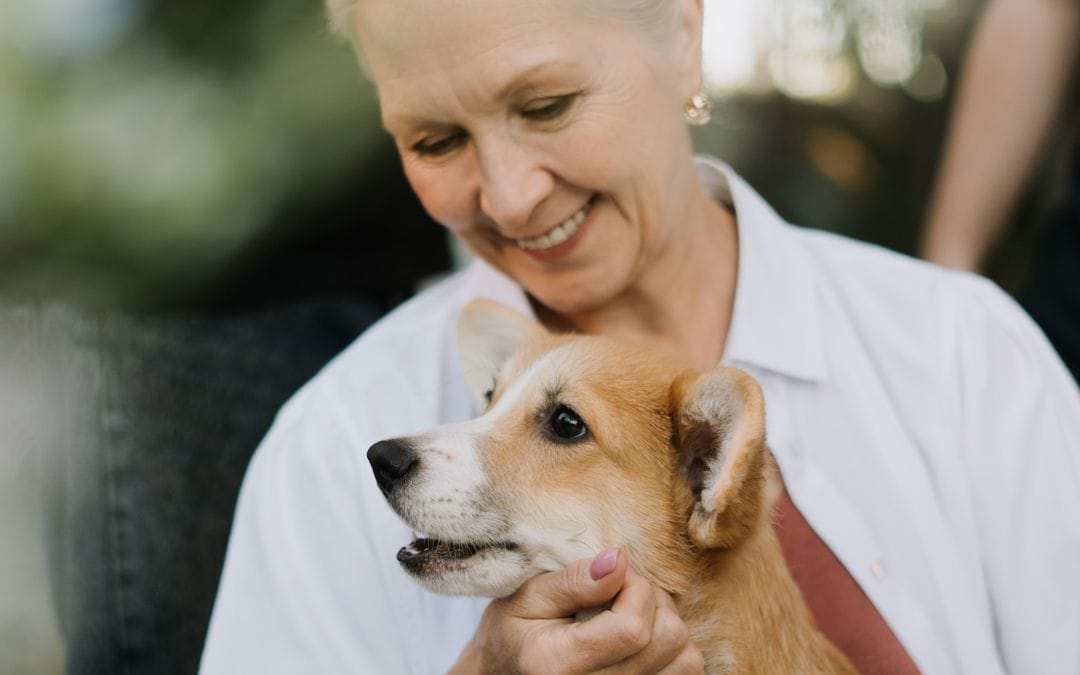Who wouldn’t love an extra, snuggle-friendly pet in the house? The benefits of having a pet are pretty well-documented for people of all ages—they can significantly improve our overall emotional well-being and even deter the development of depression. They also encourage daily activity, whether you’re walking a dog, chasing a cat, or performing general caretaking tasks.
While pets can bring significant benefits to us, decreased mobility or other health issues can make caring for a pet more difficult. For this reason, seniors need to find the right pet that requires no more than the amount of care they can give.
If you are a senior and currently have a pet or are considering getting one, here are five tips for your pet ownership journey:
1. Choose the Right Pet
Choosing the right animal is often the most important (and fun) part of the pet process. If you have an active lifestyle, whether on your own or in a senior living community, a pet that requires less maintenance is usually a good fit.
For example, adopting a large puppy will require significant work, training, and time investment. On the other hand, adopting a cat may present an easier transition and require less overall maintenance.
Aside from dogs and cats, you can consider any number of animals, from rabbits to hamsters or birds. If you are not sure what type of pet will suit your lifestyle, visit your local pet store and ask their opinion. A professional will help you decide what type of pet is right for you based on your needs and living situation.
2. Make Sure Assistance Is Available
No matter your age, everyone needs help with pets from time to time. It is critical to make sure you have support to rely on in emergencies, from dropping in to feed or walk your pet to taking care of them when you are sick or away,
If you are retired, you should be making the most of your retirement; you shouldn’t expect to be around 24/7 for your pet’s sake. Pets for seniors are certainly a responsibility, but they should not be a burden you carry alone. Lean on family and friends to help you, or look for a reputable service that can assist you.
3. Get Automatic Feeders and Water Dispensers
Pets rely on a consistent schedule to stay healthy. Most pets need to be fed and given water in the same time frames each day. If you have an active lifestyle, you may not always be home at the right time to feed your pet. Automatic feeders and water dispensers allow you to set and forget, so your pet will never miss a meal. You don’t have to worry if meal time slips your mind with an automatic feeder!
4. Find an Accessible Vet
All types of pets will need to visit the vet at some point. Even low-maintenance pets for seniors will need shots, checkups, and attention when they get sick. For some seniors, getting to the vet can be a hassle. Try to find a vet with a flexible schedule or one who will make house calls.
Ensuring that you can get your pet veterinary attention when they need it is a critical part of pet ownership.
5. Plan for the Future
As you get older, planning for the future becomes more important. If you unexpectedly experience a health issue that requires hospitalization, someone needs to be there to take care of your pet. Similarly, you should have a plan for who will take full ownership of your pet if, for any reason, you are no longer able to care for it.
Pets at Vineyard Senior Living
We strive to create a friendly, active, and personalized environment for Vineyard Senior Living residents. We know the benefits of pets for seniors, so our apartments are already pet-friendly. Our staff wants to ensure that you and your furry friends are comfortable and receive the help you need. Just don’t be surprised when we ask to meet your pet! We love getting to know all the furry friends in our community—who wouldn’t? Call us today or visit our website to learn more about how you (and your pet) can make the move to Vineyard Senior Living.

